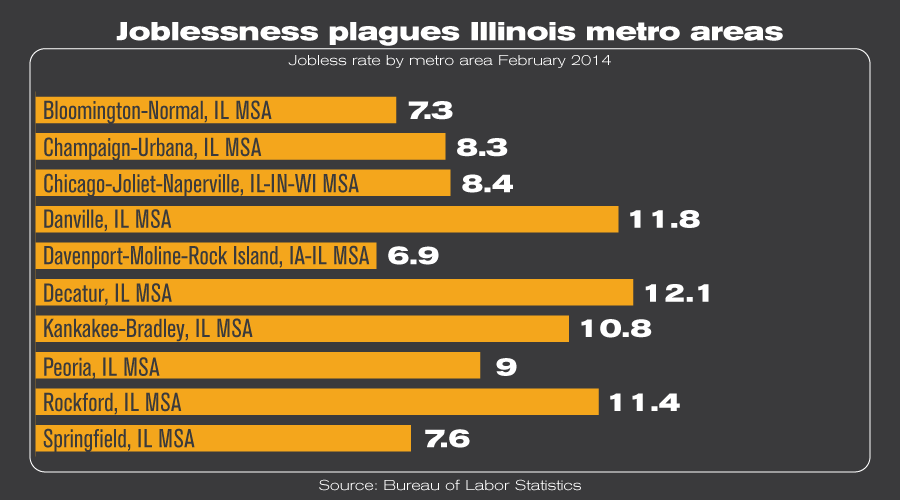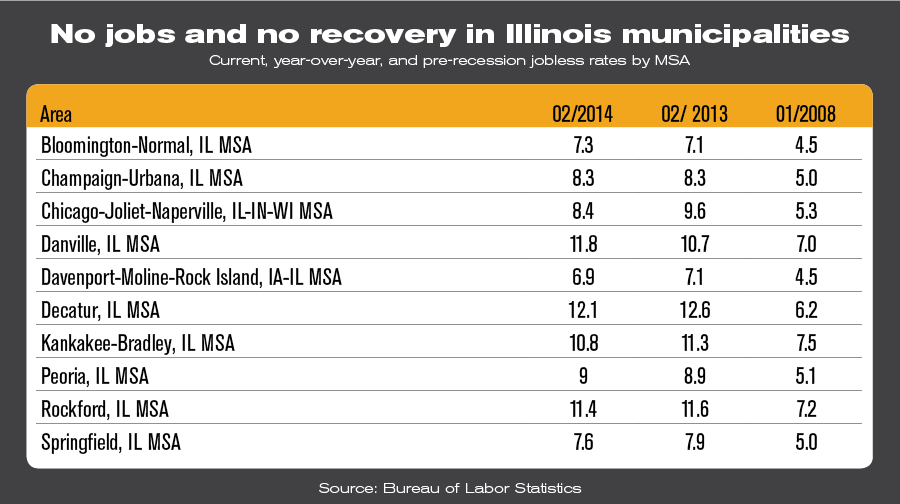Metropolitan area jobs crisis continues
Illinois’ 10 largest metropolitan areas continue to be plagued with joblessness, according to a release by the Bureau of Labor Statistics. This news comes on the heels of no monthly improvement in the state jobless rate, which at 8.7 percent is 2 points higher than the national average. Illinois has the second highest jobless rate...
Illinois’ 10 largest metropolitan areas continue to be plagued with joblessness, according to a release by the Bureau of Labor Statistics. This news comes on the heels of no monthly improvement in the state jobless rate, which at 8.7 percent is 2 points higher than the national average. Illinois has the second highest jobless rate nationally, and the highest in the region.
All of Illinois’ 10 largest metro areas have a higher jobless rate than the national average of 6.7 percent. Danville, Decatur, Kankakee and Rockford have double-digit joblessness more than six years after the Great Recession began.
Illinois has been suffering from job-killing pension, tax and regulatory policies.
Illinois’ metro areas are a long way from recovering from the Great Recession. Another job-killing tax hike is not what the metro areas need.
If Illinois doesn’t change things, the state and its municipalities will continue to lose residents. According to the Internal Revenue Service, every county that hosts one of Illinois’ 10 largest MSAs has seen net out-migration over the past two decades. That means more people have left the area than entered the area. And Chicago is worst, having lost more than 1 million people to net migration over the past two decades.
The metro area jobs crisis highlights the need for both statewide and municipal-level reforms. Illinois, and Chicago specifically, have regulatory fields full of anti-competitive and anti-entrepreneur regulations on the books.
And municipalities across the state, Chicago in particular, have untenable pension liabilities that need to be fixed through real reform. Such reform would relieve job creators from creeping property taxes and would transfer ownership of pensions from politicians to the workers who earn them.


